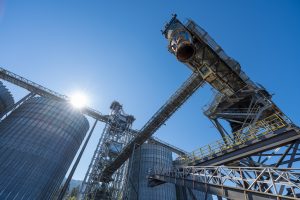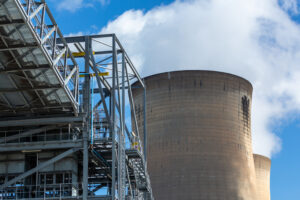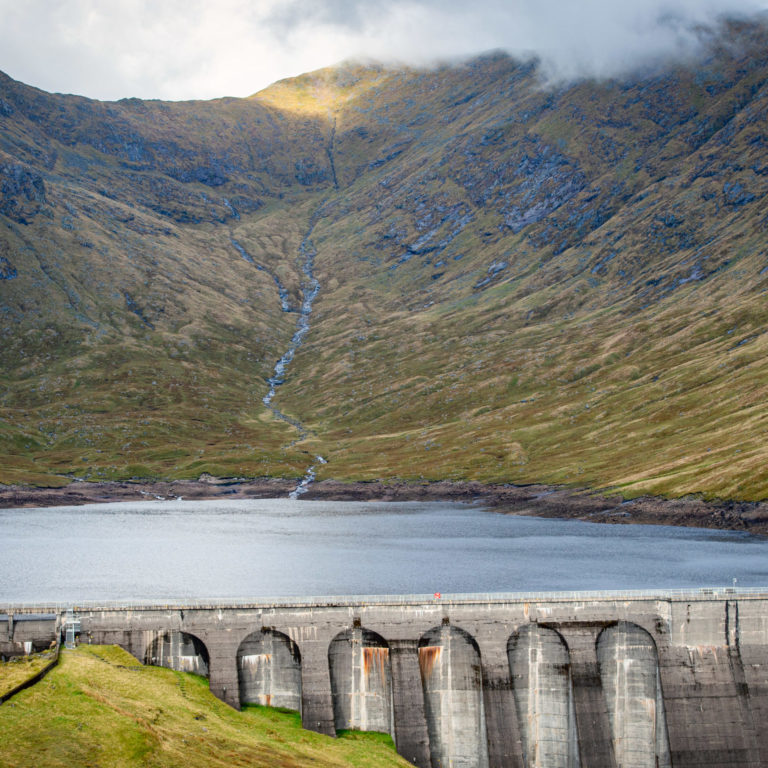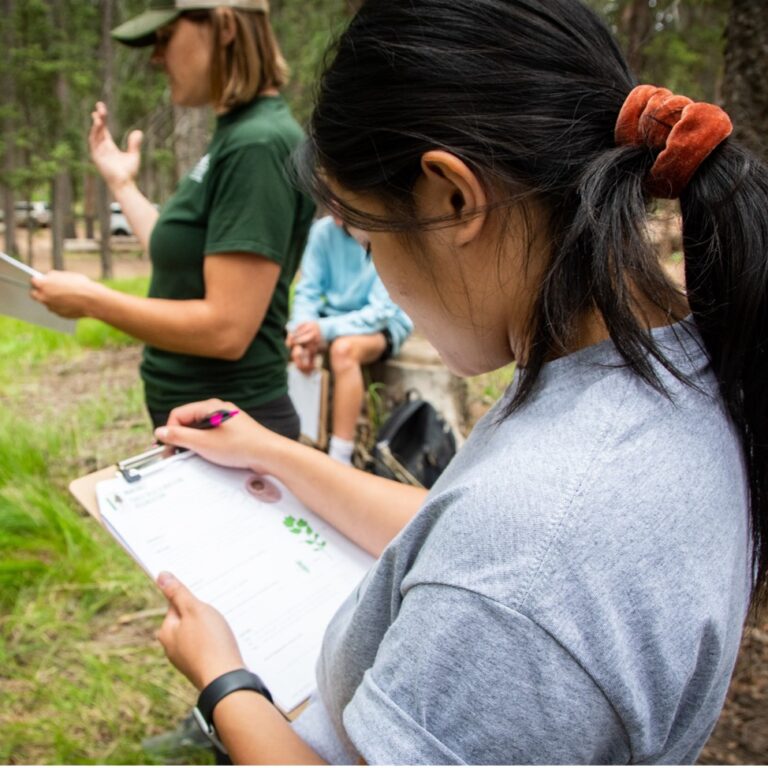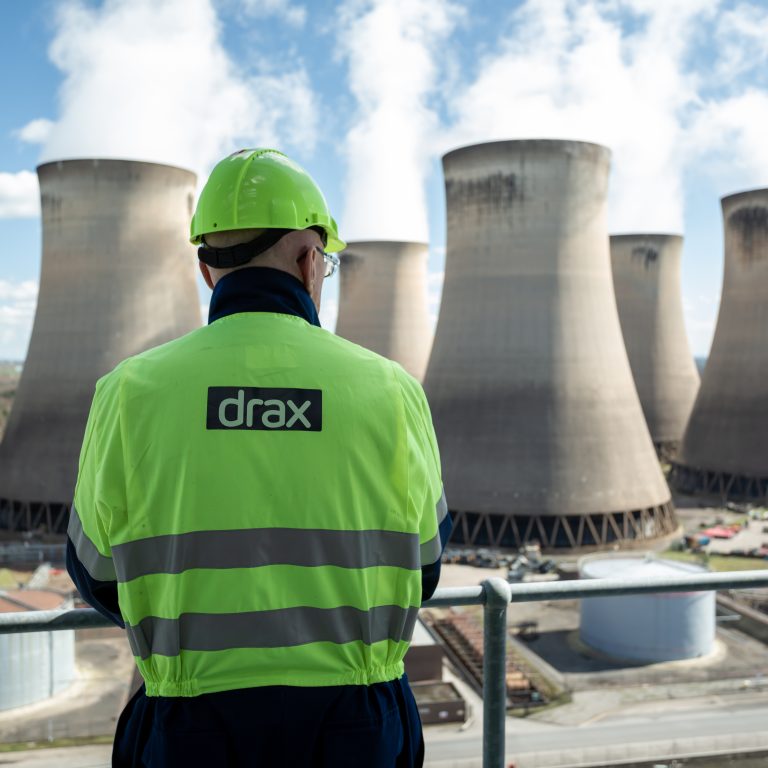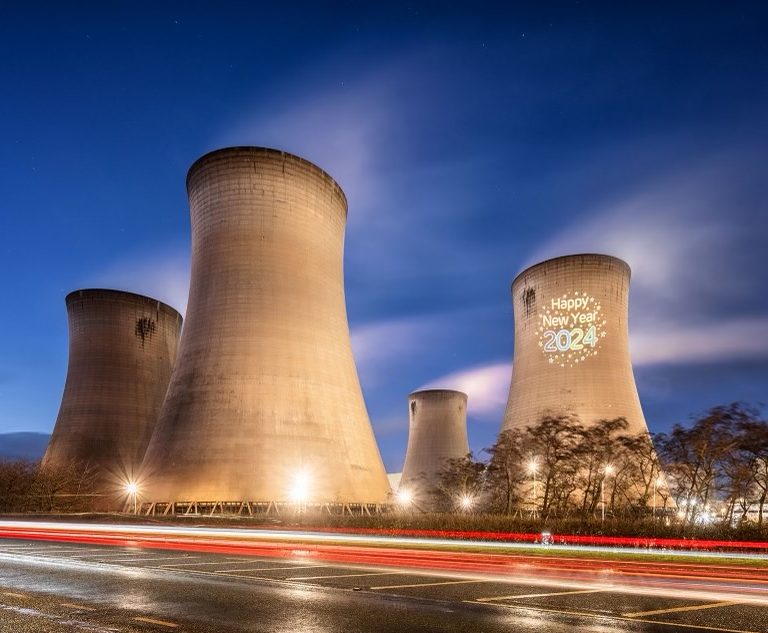Many components are needed to tackle climate change and reach environmental milestones such as meeting the goals of the Paris Agreement. One of those components is the right workforce, large enough and with the necessary skills and knowledge to take on the green energy jobs of a low-carbon future. In 2020, the renewable energy sector employed 11.5 million people around the world, but as the industry continues to expand that workforce will only grow.
Last year, a National Grid report found that in the UK alone, 120,000 jobs will need to be filled in the low-carbon energy sector by 2030, to meet the country’s climate objectives. That figure is expected to rise to 400,000 by 2050. The UK energy sector as a whole currently supports 738,000 jobs and much of this workforce already has the skills needed for a low carbon society . Others can be reskilled and retrained, helping to bolster the future workforce by supporting employees through the green transition.
At a global level energy sector jobs are expected to increase from 18 million to 26 million by 2050. Jobs that will span the full energy spectrum; from researching and advising on low-carbon solutions to installing and implementing them.
Here are some of the roles that will be key to the low-carbon energy transformation:

A wind farm under construction off the English coast
Wind turbine technicians
According to the International Energy Agency (IEA), wind power is this year set for a 17% increase in global energy generation compared to 2020, the biggest increase of any renewable power source. The IEA also forecasts that wind power will need to grow tenfold by 2050 if the world is to meet the goals of the Paris Agreement. It’s not surprising, therefore, that wind turbine technicians – the professionals who install, inspect, maintain, and repair wind turbines – are in high demand. In the US, wind turbine technician is the fastest-growing job in the country – with 68% growth projected over the 2020-2030 period – to give just one example.
In the UK, many wind turbine technicians have a background in engineering or experience from the wider energy sector. Although there are wind turbine technician and maintenance courses available, they are not a prerequisite, and many employers offer apprenticeships and on-the-job training – smoothing the path for energy professionals to transition into the role.
Solar panel installers
Today, solar photovoltaic (solar PV) is the biggest global employer in renewable energy, accounting for 3.8 million jobs. The IEA also reported a 23% uptick in solar PV installations around the world in 2020. In the UK, there are currently 13.2 gigawatts (GW) of installed solar power capacity. Trade association Solar Energy UK predicts this will need to rise to at least 40 GW by 2030 if the UK is to succeed in becoming a net zero economy by 2050. The trade association believes this could see the creation of 13,000 new solar energy jobs.
Solar panel installers – who carry out the important job of installing and maintaining solar PV – are essential to a low-carbon future. Many solar panel installers in the UK come from a background in electrical installation or have transitioned from engineering. While there are training courses specifically designed for solar panel installers, they are not a necessity, particularly if you already have on-the-job experience in a relevant sector. This makes a move to becoming a solar panel installer relatively easy for someone already working in energy or with a mind for engineering.

Energy consultants
Businesses of all kinds must play a role in the transition to net zero. Organisations must be able to manage their energy use and begin switching to renewable sources. As professionals who advise companies on this process, renewable energy consultants are a key part of the green energy workforce. Aspects of the job include identifying how organisations use their electric assets and helping businesses optimise those assets to build responsiveness and flexibility into energy-intensive operations. The core responsibilities of a renewable energy consultant are to reduce a company’s environmental impact while helping the business reduce energy costs and identifying opportunities.
Carbon accountants
A growing number of businesses are setting targets for reducing their greenhouse gas (GHG) emissions. But that’s only possible if you can first determine what your GHG emissions are and where they come from, which is where the relatively young field of carbon accounting comes in. Through what is known as physical carbon accounting, companies can assess the emissions their activities generate, and where in the supply chain the emissions are occurring. This allows businesses to implement more accurate actions and be realistic in their timelines for reducing emissions.
On a wider scale, accurate carbon accounting will be crucial in certifying emissions reductions or abatement, as well as in the distribution of carbon credits or penalties as whole economies push towards net zero.
Battery technology researchers
Energy storage is essential to a low-carbon energy future. The ability to store and release energy from intermittent sources such as wind and solar will be crucial in meeting demand and balancing a renewables-driven grid. While many forms of energy storage already exist, developing electric batteries that can be deployed at scale is still a comparatively new and expanding area.
Global patenting activities in the field of batteries and other electricity storage increased at an annual rate of 14% – four times faster than the average for technology – between 2005 and 2018. However, it’s estimated that to meet climate objectives, the world will need nearly 10,000 GW hours of battery and other electricity storage by 2040. This is 50 times the current level and research and innovation will be crucial to delivering bigger and more efficient batteries.
Farmers and foresters
How we use and manage land will be important in lowering carbon emissions and creating a sustainable future for people and the planet. Crops like corn, sugarcane, and soybean can serve as feedstock for biofuel and bioenergy, and farming by-products such as cow manure can be used in the development of biofuel.
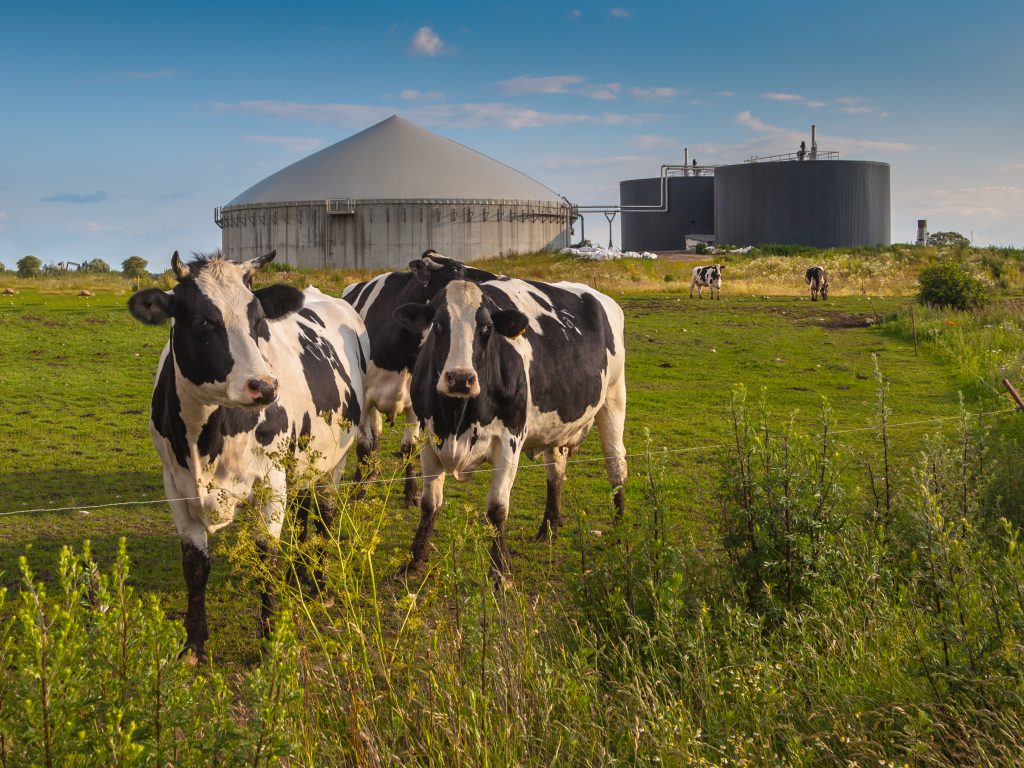
Techniques adopted in the agricultural sector will also be important in optimising soil sequestration capabilities while ensuring it is nutrient-rich enough to grow food. These techniques include the use of biochar, a solid form of charcoal produced by heating biomass without oxygen. Research indicates that biochar can sequester carbon in the soil for centuries or longer. It also helps soil retain water and could contribute to reducing the use of fertilisers by making the soil more nutrient-dense.
Forests, meanwhile, provide material for industries like construction, the by-products from which can serve as feedstock for woody biomass, primarily in the shape of low-grade wood that would otherwise remain unused. Sustainably managed forests, such as those from which Drax sources its biomass, have two-fold importance. They both enable woody biomass for bioenergy and ensure CO2 is removed from the atmosphere as part of the natural carbon cycle.
Biofuel engineers and scientists
Farmers and foresters provide feedstock for biofuels, but it’s biofuel scientists and engineers who research, develop, and enhance them, opening the door to alternative fuels for vehicles, heating, and even jet engines.
According to the IEA, production of biofuel that can be used as an alternative to fossil fuels in the transport sector grew 6% in 2019. However, the organisation forecasts that production will need to increase 10% annually until 2030to be in line with Paris Agreement climate targets.
Scientific innovations that can help boost the production of biofuel around the world, therefore, continues to be vital. As is the work of biofuel engineers who assess and improve existing biofuel systems and develop new ones that can replace fossil fuels like petrol and diesel.
The wealth of knowledge around fuels in the oil and gas industries means there is ample opportunity for scientists and engineers who work with fossil fuels to bring their skills to crucial low-carbon roles.
Geologists
The overriding goal of the Paris Agreement is to limit global warming to “well below” 2 and preferably to 1.5 degrees Celsius, compared to pre-industrial levels. This is an objective the IEA has said will be “virtually impossible” to fulfil without carbon capture and storage (CCS) technologies. CCS entails capturing CO2 and transporting it for safe and permanent underground storage in geological formations such as depleted oil and gas fields, coal seams, and saline aquifers.
According to the Global CCS Institute, the world will need a 100-fold increase on the 27 CCS project currently in operation by 2050. Knowledge and research into rock types, formations, and reactivity will be important in helping identify sites deep underground that can be used for safe, permanent carbon storage, and sequestration. Skills and expertise gained in the oil and gas industries will allow professionals in these sectors to make the switch from careers in fossil fuel to roles that help power a net zero economy.
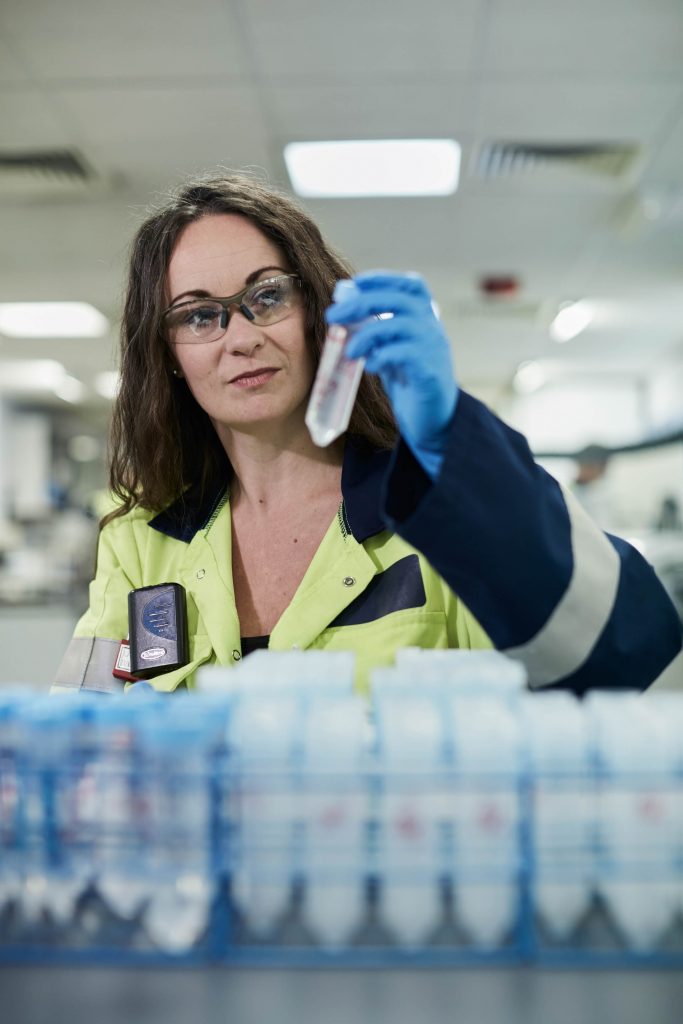
Employees working at Drax Power Station
Chemists
The role of chemists is also vital to decarbonisation. Knowledge and research around CO2 is a potent force in the effort to reduce and remove it from the atmosphere.
Technologies like CCS, bioenergy with carbon capture and storage (BECSS) and direct air carbon capture and storage (DACCS) are based around such research. Carbon capture processes are chemical reactions between emissions streams and solvents, often based on amines, and GHGs. Understanding and controlling these processes makes chemistry a key component of delivering carbon capture at the scale needed to help meet climate targets.
Chemists’ role in decarbonisation is far from limited to carbon capture methods. From battery technology to reforestation, chemists’ understanding of the elements can help drive action against climate change.
Bringing together disciplines
Tackling climate change on the scale needed to achieve the aims of the Paris Agreement depends on collaboration between industries, countries, and disciplines. Decarbonisation projects such as the UK’s East Coast Cluster, which encompasses both Zero Carbon Humber and Net Zero Teesside, fuse engineering and construction jobs with scientific and academic work.
Zero Carbon Humber, which brings together 12 organisations, including Drax, is expected to create as many as 47,800 jobs in the region by 2027. Among these are construction sector jobs for welders, pipefitters, machine installers and technicians. In addition, indirect jobs are predicted to be created across supply chains, from material manufacturing to the logistics of supporting a workforce.
Meeting climate challenges and delivering projects on the scale of Zero Carbon Humber, depends on creating an energy workforce that combines the knowledge of the past with the green energy skills of the future.
Drax’s apprenticeships have readied workers for the energy sector for decades, and will continue to do so as we build a low-carbon future. Options include four-year technical apprenticeships in mechanical, electrical, and control and instrumentation engineering. Getting on-the-job training and practical experience, apprentices receive a nationally recognised qualification, such as a BTEC or an NVQ Level 3, at the end of the programme.
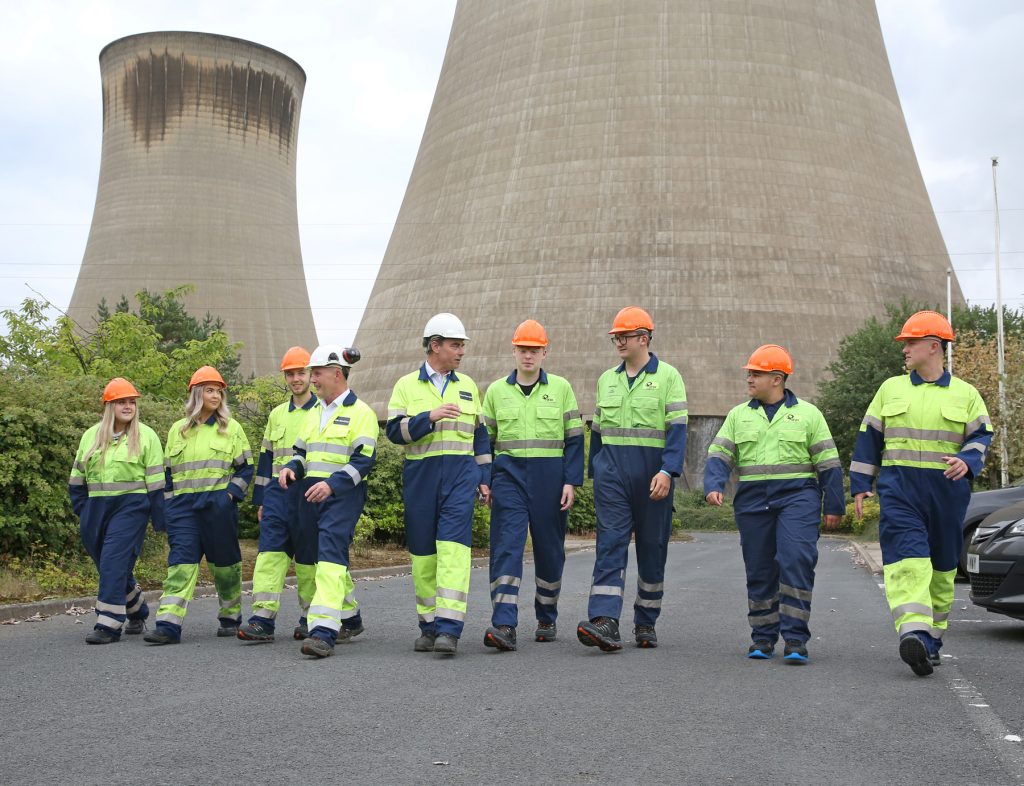
Apprentices at Drax Power Station [2021]
The skills needed to take on these roles are already plentiful in the UK and around the world. Overcoming challenges on the road to net zero requires refocussing these existing talents, skills, and careers towards a new goal.





